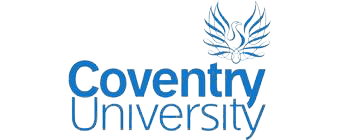Become the best you can be in the construction industry with an accredited Master’s in Civil Engineering from Coventry University.
Take our virtual tour
The Civil Engineering MSc is offered to UK civil engineering and cognate science/engineering graduates seeking a professional qualification as Chartered Engineers.
The Civil Engineering (Technical Route) MSc is available for holders of an overseas bachelor’s degree or a UK bachelor’s degree accredited as the educational base for an Incorporated Engineer (IEng), for example a BSc in Civil Engineering or cognate science/engineering disciplines, for those seeking a professional qualification as Chartered Engineers through a ‘Technical Route’.
The courses are designed to develop high-level knowledge and wide-ranging understanding of the planning, design, construction and operation of civil engineering works, exploring the traditional and innovative practices behind iconic constructions such as Wembley stadium. They also aim to provide students with practical knowledge and innovative strides applicable to strategic management of construction and engineering projects, including relevant importance of Building Information Modelling (BIM) in construction project management. A technical focused MSc research project is mandatory for students enrolled on the Civil Engineering (Technical Route) MSc course.
These highly practical courses are delivered with input from industry to help you establish or advance your career in the construction industry. Accredited by the Joint Board of Moderators (JBM)*, the courses meet the educational base for Chartered Engineer (CEng) status and successful completion provides automatic progression for holders of an accredited Bachelor’s degree.














